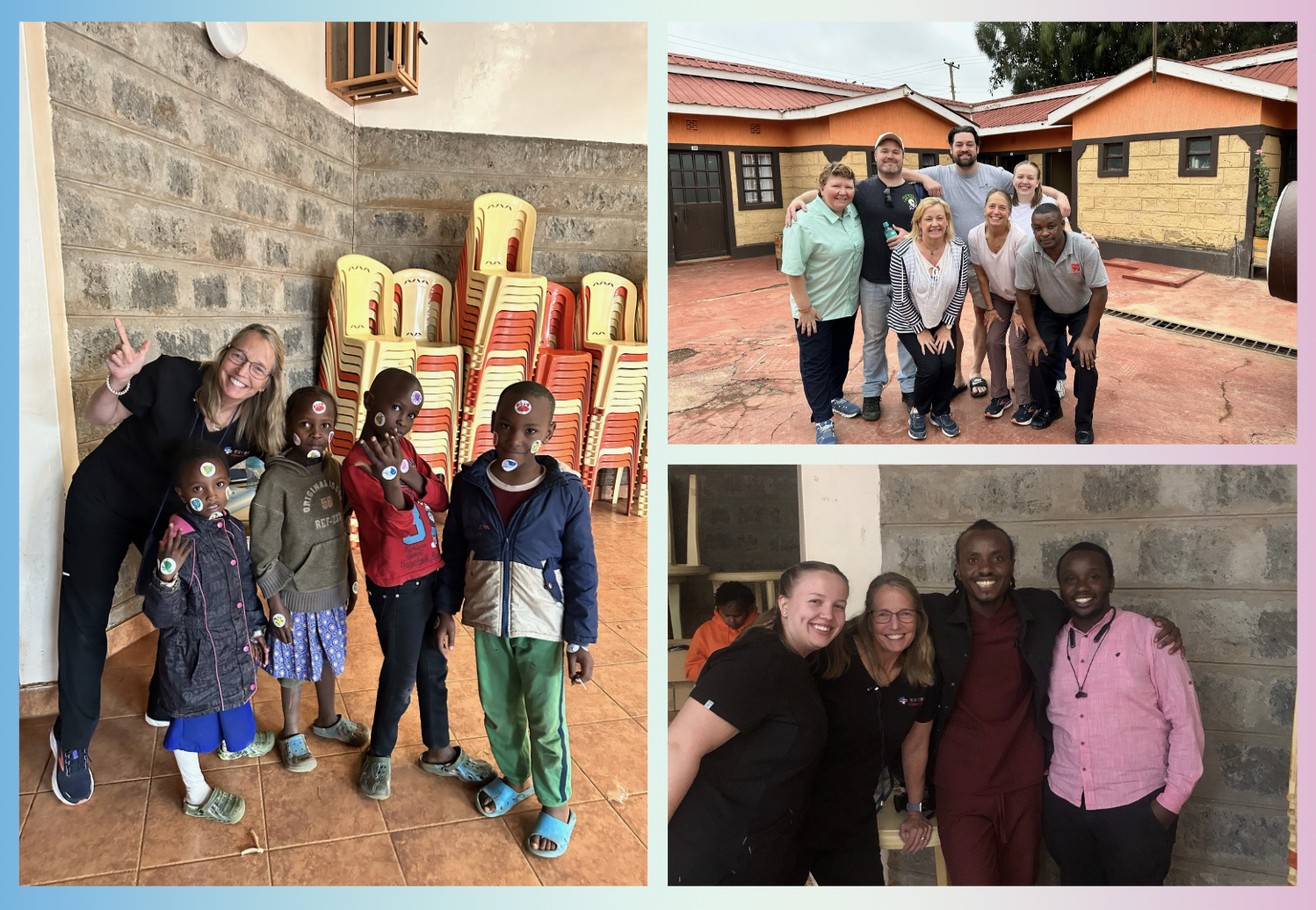Pediatrix Clinicians from Texas Provide Lifesaving Neurologic Care Deep in the Heart of Kenya
Epilepsy is the most common neurological disorder in the world, with children in sub-Saharan Africa comprising the largest group of those affected. In rural areas of Kenya in particular, care is difficult to find, so children often go undiagnosed and untreated. Pediatric neurologist Karen Keough, M.D., and several of her colleagues at Pediatrix Specialty Care of Austin regularly participate in medical missions to Kenya to deliver lifesaving neurological care to children in underserved areas.
In Maai Mahiu, Kenya, and surrounding communities, many families lack running water or consistent access to food. Most don’t have access to quality health care, especially specialized care. Residents see a “medical officer,” a person who performs the role of a physician but only has two years of post-high school medical training. Because of this limitation, children with treatable yet untreated conditions, such as epilepsy, lacked proper treatment and were unable to attend school or reach key developmental milestones.
“Care in Kenya is very basic. Public health efforts are bare bones and not universally distributed,” Dr. Keough explained. “Kenyans receive basic vaccinations but don’t routinely see doctors. Many of us in the U.S. think health care is the same everywhere, but when you go to Kenya, you see what ‘different’ really means. So many people fall through the cracks in the system.”
Bringing Care to Rural Africa
For more than 10 years, Dr. Keough and other Pediatrix® Medical Group physicians have worked collaboratively with the Austin, Texas-based non-profit Ubuntu Life Foundation to bring care to where it’s needed most. Through the foundation’s HEAL Kenya program, founded by Pediatrix neurologist Jeff Kane, M.D., teams of volunteer clinicians staff quarterly medical clinics. In addition to neurology care, the clinics offer pediatrics, cardiology, hematology, dermatology and general surgical services. Other Pediatrix clinicians involved in previous medical missions include Michael Reardon, M.D., Lindsay Elton, M.D., and Toshia McKeon, PNP, from Pediatrix Specialty Care of Austin; pediatric cardiologists Ken Shaffer, M.D., and Karen Wright, M.D., of Pediatrix Pediatric and Congenital Cardiology Associates of Texas, and pediatric critical care physician Renee Higgerson, M.D., of Pediatrix Critical Care of Texas.
Volunteers pay their own travel expenses. Supplies are purchased using donations. Items like defibrillators and suction machines have been donated by volunteer clinicians. When medication is needed, clinicians typically prescribe formulations that can be found locally in Kenya. While different from the medications we use in the United States, they are effective and affordable.
After years of providing care only intermittently through volunteer trips, Ubuntu Foundation now employs a full-time Kenyan physician. The group’s neurology program is the most extensive specialty provided through the foundation, treating roughly 260 patients a month. Additionally, through HEAL Kenya’s medical camps, Dr. Keough and other U.S.-based specialists offer neurology consultations and free or discounted medications.
Dr. Keough completed her sixth mission trip in June when their team of volunteers, which also included two pediatricians and an electroencephalogram (EEG) technician, saw more than 300 patients in four days.
The majority of the children she treated had epilepsy, and many didn’t have medication to adequately manage the condition before HEAL Kenya began medical mission trips. In most cases, epilepsy was caused by infection or perinatal injury, which also causes the condition in the U.S., but much less frequently. The team also saw many patients with malnutrition, rickets and cerebral palsy.
“On my first trip, I saw children with epilepsy who had never been on medication and were just zombies,” Dr. Keough said. “Then, once they received medication, they we able to talk, started going to school and interacting with their friends. It’s incredibly powerful, life-altering care, and if we no longer were able to provide it, these kids would all regress because there is no alternative.”
10 Years of Progress
The original objective of the foundation was to build a school and daycare, which they accomplished. Now the organization employs more than 100 Kenyans in its manufacturing facility, creating lasting impacts in the region.
“After all of the fundraising, planning and building, it’s very gratifying to see the fruition of the work that we’ve done over all these years,” said Dr. Keough. “Our clinics used to take place in a cramped government-run clinic with no running water and no toilets. Now, the clinic is clean and spacious, with indoor plumbing. The school we helped raise funds to build is a beautiful facility with a playground with handicapped access and transportation.”
The group is always looking for more provider volunteers, including physicians, nurses and medical assistants. While the trip can be expensive, volunteers can fundraise using crowdsourcing platforms to offset expenses.
“When these kids see a physician who understands their disease and knows which medications can help, it’s a whole different level of intervention,” Dr. Keough said. “The payoff is miraculous. It’s unbelievable what persistence can build. It’s really inspiring.”
